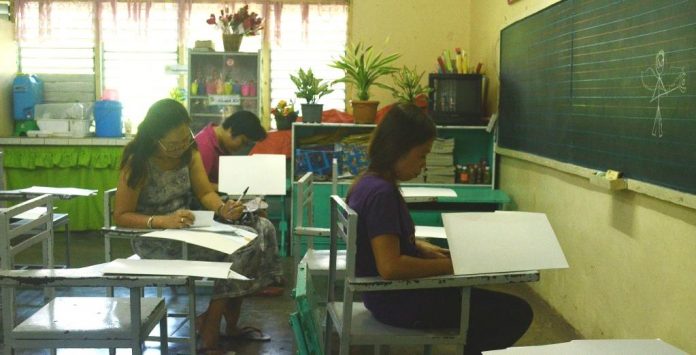
BY GLENDA TAYONA and IME SORNITO
ILOILO City – Win or lose, candidates in yesterday’s barangay and Sangguniang Kabataan elections must be responsible enough to clean their villages of campaign posters, flyers and sample ballots, among others, according to the Department of Environment and Natural Resources (DENR).
Director Jim Sampulna said the call for “clean elections” should go beyond the casting of votes yesterday – to the cleaning of surroundings of election trash after the polls.
“Candidates must serve as models in environmental cleanup,” Sampulna told Panay News.
Commission on Elections (Comelec) acting regional director Tomas Valera agreed with Sampulna and urged the 114,385 barangay and SK election candidates to launch cleanup drives today.
He warned of public drainage systems getting clogged if campaign materials were properly disposed.
According to waste and pollution watch group Ecowaste Coalition, a voluntarily removing all remnants of the campaign frenzy is “a nice way of expressing magnanimity in victory, as well as graciousness in defeat.”
“We hope poll candidates and their supporters will exert the same effort, time and resources they have invested during the campaign period for post-election ecological cleanup and recycling activities on May 15,” said Daniel Alejandre, zero waste campaigner, EcoWaste Coalition.
The EcoWaste Coalition emphasized that such activities should be undertaken in an eco-friendly manner that will not pose hazards to community health and the environment.
To minimize such hazards, the group stressed the need for the candidates and their supporters to be mindful of acts prohibited under key environmental laws such as the Ecological Solid Waste Management Act, Clean Air Act, and the Clean Water Act.
“Dumping campaign discards on streets, vacant lots, storm drains and water bodies, or setting them on fire are forbidden by our laws to protect public health and the environment,” said Alejandre.
Discarded campaign materials should be segregated, not mixed altogether, to facilitate their proper recycling or disposal, he stressed.
Alejandre also warned against the open burning of campaign materials, particularly those made out of chlorinated compounds such as polyvinyl chloride (PVC) plastic tarpaulins.
“Aside from particle pollution, the open burning of trash may cause the formation and discharge of dioxins, a group of highly toxic chemicals resulting from combustion processes,” he said.
According to the US Environmental Protection Agency, “dioxins are highly toxic and can cause cancer, reproductive and developmental problems, damage to the immune system, and can interfere with hormones.”
The Stockholm Convention on Persistent Organic Pollutants (POPs), of which the Philippines is a state party, calls for global reduction of byproduct POPs such as dioxins and, where feasible, their ultimate elimination.
“The post-campaign clean-up should not lead to human exposure to dioxins and other environmental pollutants,” according to the EcoWaste Coalition./PN





